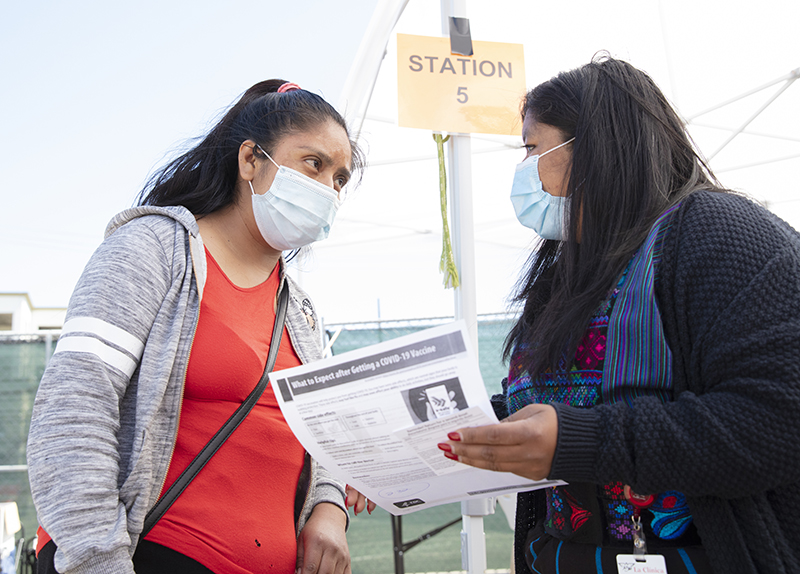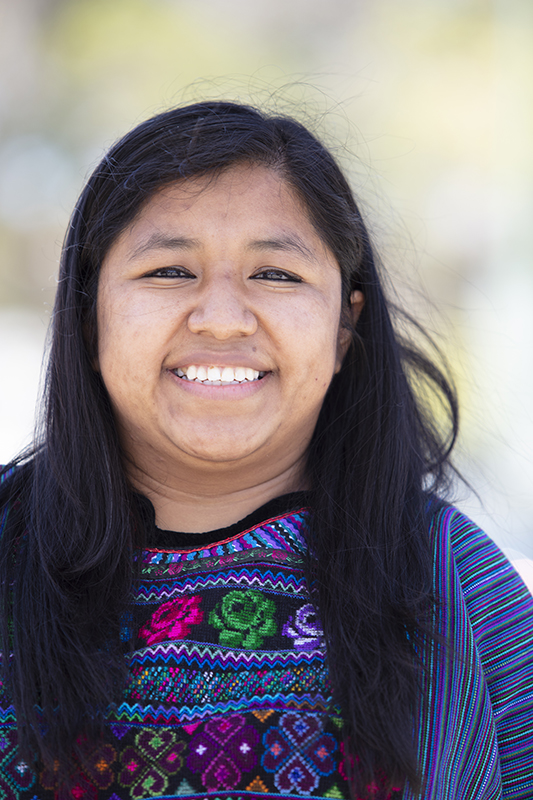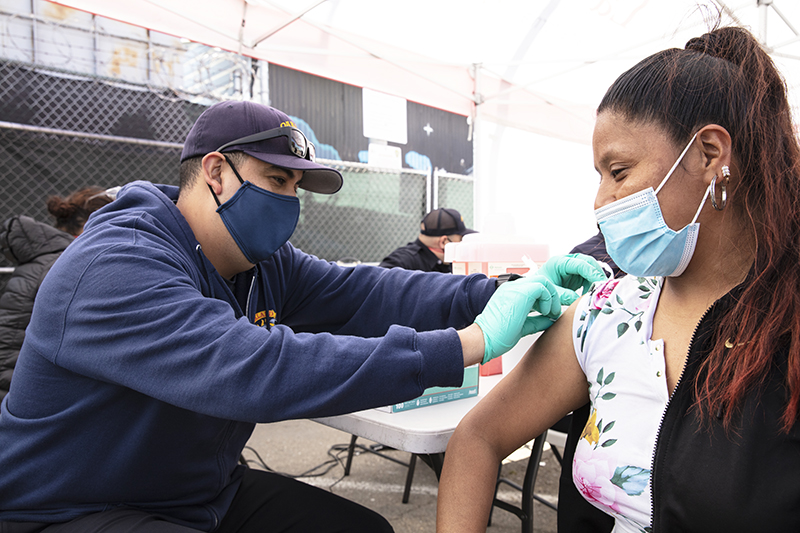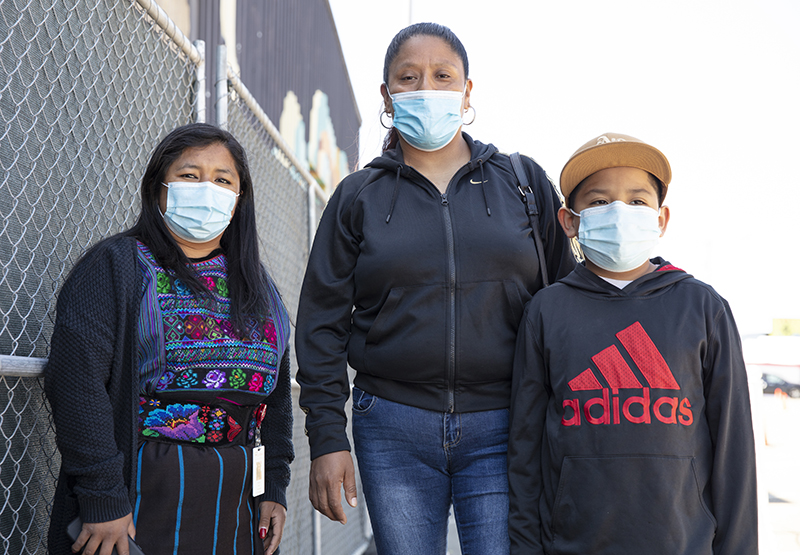COVID-19 Vaccines and Language/Culture Access: Brenda’s Story




The Maya Mam is a growing community in Oakland of indigenous people originating from Guatemala and south-western Mexico. With limited access to healthcare services and inequitable access to COVID-19 vaccines, they are also a vulnerable community.
My name is Brenda Perez and I work at La Clínica Cultura y Bienestar as a Mental Health Educator. I am uniquely qualified for this role because I was born and raised in Todos Santos Cuchumatán, one of Guatemala’s indigenous towns. Todos Santos, which translates to “all saints” in English, is populated by the Mam people who still speak the Mayan language of Mam. I learned Mam at home and Spanish at school and I came to the US when I was 11 years old.
The Mam community here has been greatly impacted by the pandemic. People are struggling to make appointments and reach vaccination sites because of transportation, access to technology, and other hurdles. Their vaccination rates are lagging and the false information about the vaccine spreading on social media is causing confusion.
Misinformation about who is allowed to receive the vaccine, when it is available and how it was safety tested has added even more difficulty to ensuring everyone is vaccinated safely. I’ve heard things like: “If I get the vaccine I will die” or “I heard there’s placenta in the vaccine” or “I heard there’s a tracking device in the vaccine.” They have many questions about getting the vaccine but they don’t feel comfortable asking. I get a lot of calls asking me if I’ve already gotten the vaccine and I tell them that I have. They’re curious to know how I feel after receiving it and what I think about it.
Battling misinformation, vaccine hesitancy and the belief that doctors are interested in experimenting on certain communities have deep roots among some demographic groups. Building trust with these communities is an important factor in successful health care delivery. Hearing these questions and concerns gave me the idea of having a Mam vaccine clinic with a designated day to assist our community in a culturally competent way with volunteers and translators to support better access and higher quality.
We work closely with community members to help them navigate the complicated health care delivery system, overcome misinformation, and false beliefs and develop trust.
I genuinely want to help my community. I respect our culture and values and beliefs. At the same time, I work to remind them how things work here and what we can do to help. I’m proud to be able to work for them. I appreciate La Clinica and all the organizations and programs doing outreach to ensure that the Mam community has access to high-quality care and factual information.
